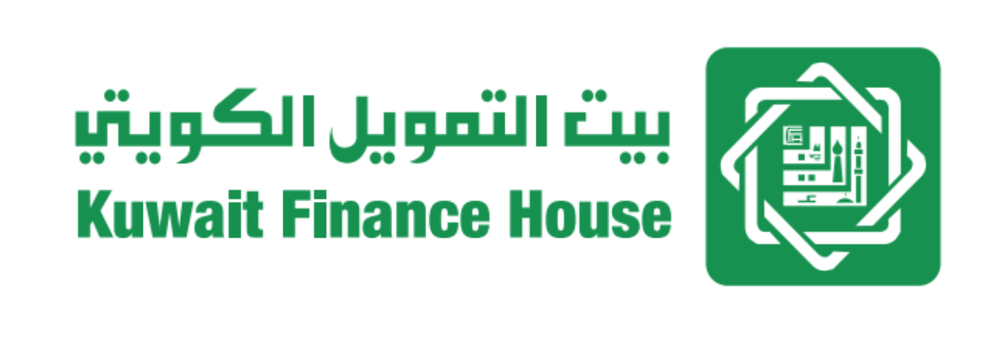Kuwait's Lawpedia Wants To Offer Better Legal Education For Students And The Public Lawpedia provides legal education, awareness and law related services to students, lawyers and the public.
Opinions expressed by Entrepreneur contributors are their own.
You're reading Entrepreneur Middle East, an international franchise of Entrepreneur Media.

This article is part of a series on pioneering entrepreneurs in Kuwait that Entrepreneur Middle East has built in collaboration with Kuwait Finance House. Kuwait Finance House is considered a pioneer in Islamic finance or Sharia'a compliant banking, with it being the first Islamic bank established in 1977 in the State of Kuwait, and is today one of the foremost Islamic financial institutions in the world.

Launched in 2018 by Shahad Al Melhem and Israa Al Qallaf, Lawpedia provides legal education, awareness and law related services to students, lawyers and the public. Both licensed attorneys in Kuwait, the duo wanted to gain legal knowledge outside the university life, but couldn't find anything of real educational value.
With Lawpedia, the duo set out to spread their vision of better legal education for students and legal awareness for the public, starting off with two services which were teaching and workshops. They taught students law courses to get better grades on their exams and offered legal workshops, which inspired new services in 2019, including offering their services to graduate studies, LLM thesis and translation, legal consultations and community service.
Talking about their team, Al Melhem states that their growth is due to their dedication to invest in their team members. "[It] is extremely exclusive and 90% of our members either have a master's degree in law or are currently master students. Each member is specialized in a certain department and specialized in a certain field; we believe focusing on certain topics produces more creativity from the person." The co-founder and CEO also notes that they provide learning opportunities for their team members with private training and workshop session that help develop their character and mental skills.
Their customer base consists of students, lawyers and the public, with the duo saying that many felt their target audience as too broad, but the duo wants to show them otherwise. Upon launching with the idea of being privately taught by a Kuwaiti lawyer, students were impressed. "During our study sessions with students, they ask about the coursework, as much as they ask about the practicality behind the laws. As lawyers, we offer them knowledge and real-life experience which was amusing to law students."
They also faced some setbacks as they faced certain perceptions as young lawyers too. "When we first started providing workshops to lawyers, some other lawyers were hesitant to sign up due to the age of the lawyer giving the workshop. The Kuwaiti society is not used to seeing a young face on a stage; however, the word of mouth has benefited us a lot and many lawyers started to welcome the idea of our workshop strategy." However, it was the general public, people with no legal background, that they found the most welcoming. The startup offers free legal workshops and advice, as well as share insights on various TV and radio programs and panel discussions. "The people are interested in knowing their rights and obligations."
As for Lawpedia's growth, Al Melhem says they plan to invest in the existing departments they have and invest on their team members. "We are focused on quality more than quantity, and therefore are very careful on who we choose to be part of our team."
Related: Kuwait's Holistic Development And Consulting Helps Entrepreneurs Understand Risk Management
Excerpt from a conversation with Shahad Al Melhem, founder, Lawpedia:
What has been the most negative feedback on your services that you have received and how did you go about it?
At Lawpedia, we aim to accept and scout millennials only. We strongly believe that millennials in Kuwait are a new school of thought and many of them strongly believe in a brighter future for Kuwait. The main negative feedback from the lawyers is that our team members appear to be young. Our answer is that our team members may appear young but are very experienced in their field. The more workshops we give, and the more people interact with us, the more they know what they mean. We strongly depend on word of mouth in Kuwait, and more people are interested in using our services after we give a workshop for example.
What are some of the main considerations that entrepreneurs should keep when starting up a business in Kuwait and why?
Kuwait offers a fertile ground, whatever you plant will eventually grow if you put your mind to it. Introducing a new idea in Kuwait may be intimidating at first due to the number of successful SMEs in the country. However, investing in yourself and believing in your ideas and business will help you with any obstacle you may face. One of the things we suffered from is copycat syndrome. Every time we offer a service or a workshop, we quickly find other companies repeating the same idea without any change or additions. This syndrome has enabled us to become better and compete with ourselves on a higher scale.
Lastly, what are some of the opportunities that you see available in the Kuwaiti market today and what would be your advice to aspiring entrepreneurs?
The ministries in Kuwait are trying to ease the process of incorporating businesses so there aren't any difficulties in the procedures anymore. I strongly advise people to talk to lawyers before the incorporation phase to help them legalize everything. Also, lawyers can draft many legal paperwork that will protect your intellectual property, confidentiality agreements, and partnership agreements.
Related: Kuwait's Coded Wants To Inspire Young Arabs To Code With Offline And Online Bootcamps










